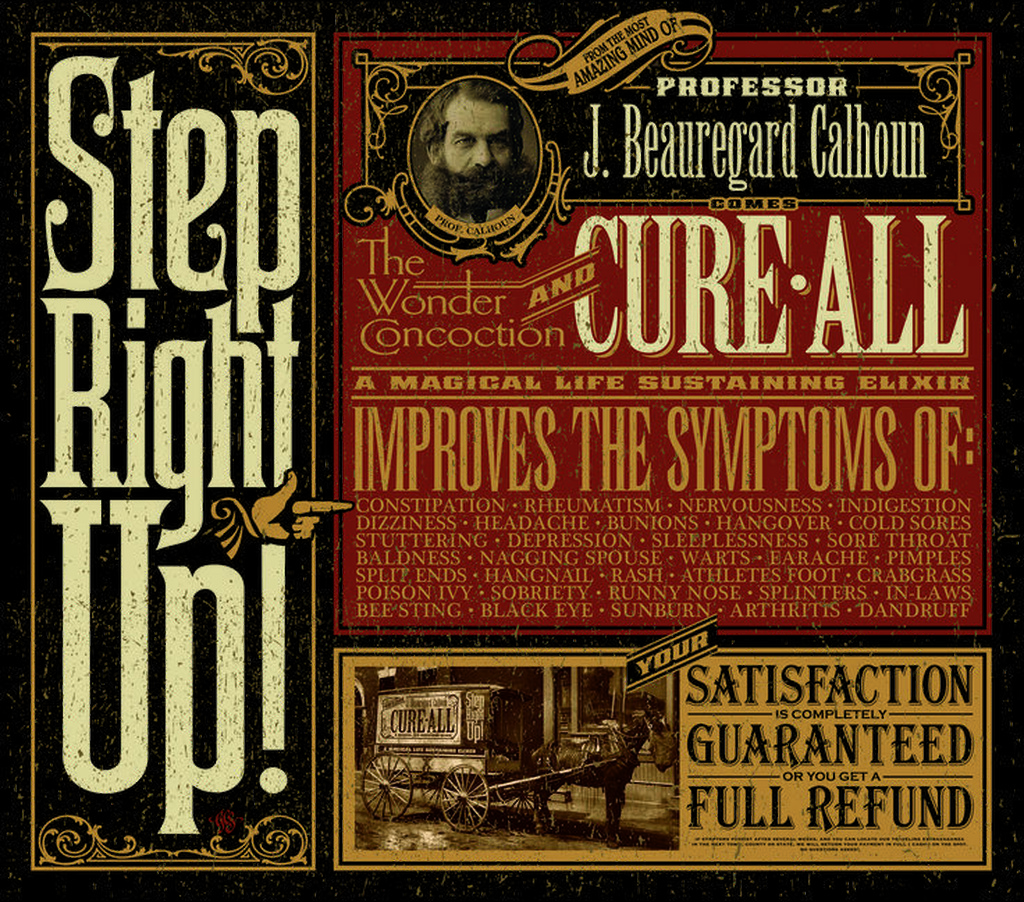
Snake-Oil Peddlers
It is precisely our lack of sound moral and religious grounding that makes snake-oil remedies so popular on all fronts. At the same time, a fanatic and irrational hostility to one another is commonplace. Everyone tends to demonize other positions and to slander them.

- R. J. Rushdoony
In bygone years, medicine shows featured snake-oil as a cure-all for almost anything. The term has been since used for any nostrum presented as a remedy for a wide variety of ailments or problems.
Our world today has more snake-oil remedies than the old-time medicine men would have dared to promote. Men of the Left and Right and in between have a wide spectrum of ideas as cure-alls for everything.
A snake-oil remedy might be good for something, but it is a fraud if seen as a cure-all for almost anything. To illustrate, we have many who see our problems as soluble with a return to the U.S. Constitution. Now the Constitution is a very modest document: it gives us no basic code of law but only a set of procedures to maintain representative government, i.e., terms of office, kinds of officers, sessions, etc., nothing more. To expect the Constitution to provide a national character is silly, and the same is true of common law. Morality and character come out of the Faith and the life of a people, not out of documents. I recall vividly the establishment of the United Nations in San Francisco at the end of World War II. It was a depressing event because its founders saw it as the answer to the world's problems. The nations involved came from a variety of religious and moral backgrounds and had little in common.
It is precisely our lack of sound moral and religious grounding that makes snake-oil remedies so popular on all fronts. At the same time, a fanatic and irrational hostility to one another is commonplace. Everyone tends to demonize other positions and to slander them.
Snake-oil specialists insist on seeing the world as black and white. They see themselves as innocent victims of evil conspiracies. Silly trifles are viewed as monumental issues, and they are the heroic Galahads, pure, noble, and unselfish, who seek the holy grail successfully.
A key value of historic Christian orthodoxy is its insistence that true faith and worship require a continuing confession of sins. The Book of Common Prayer is to the point here:
Almighty and most merciful Father; We have erred, and strayed from thy ways like lost sheep. We have followed too much the devices and desires of our own hearts. We have offended against thy holy laws. We have left undone those things which we ought to have done; and we have done those things which we ought not to have done; and there is no health in us. But thou, O Lord, have mercy upon us, miserable offenders. Spare thou those, O God, who confess their faults. Restore thou those who are penitent; according to thy promises declared unto mankind in Christ Jesus our Lord. And grant, O most merciful Father, for his sake; that we may hereafter live a godly, righteous, and sober life, to the glory of thy holy name. Amen.
Such a confession gives one humility, and this means not only with respect to what we are, but also with regard to what we do. On all sides, there are too many people in the messiah business, forgetting that there is only one true Messiah, and it is neither you nor I nor any other man! Humility, anyone?

- R. J. Rushdoony
Rev. R.J. Rushdoony (1916–2001), was a leading theologian, church/state expert, and author of numerous works on the application of Biblical law to society. He started the Chalcedon Foundation in 1965. His Institutes of Biblical Law (1973) began the contemporary theonomy movement which posits the validity of Biblical law as God’s standard of obedience for all. He therefore saw God’s law as the basis of the modern Christian response to the cultural decline, one he attributed to the church’s false view of God’s law being opposed to His grace. This broad Christian response he described as “Christian Reconstruction.” He is credited with igniting the modern Christian school and homeschooling movements in the mid to late 20th century. He also traveled extensively lecturing and serving as an expert witness in numerous court cases regarding religious liberty. Many ministry and educational efforts that continue today, took their philosophical and Biblical roots from his lectures and books.